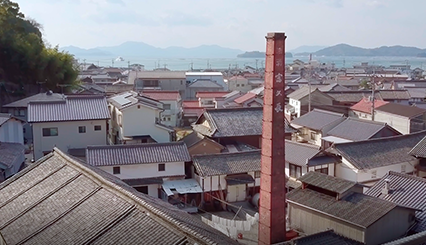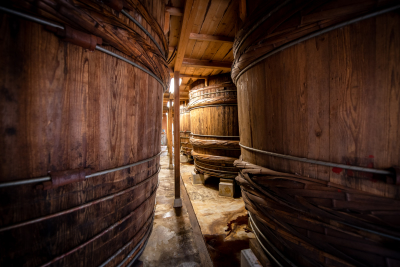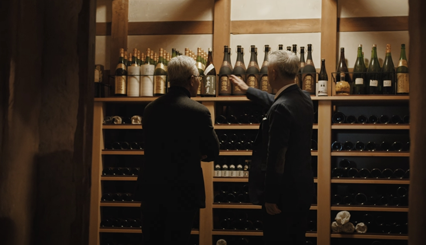CASE STUDY
Search by area
Search by keyword
- All
- Ryotei & Restaurants
- Lodging/Hotels
- Producers
- Technology
- DX (Digital) & SNS
- City Planning
- Utilization
- Gastronomy and Culinary
- Japanese Nature
- Japanese history and traditional culture
- Japanese Food Culture
- Agriculture
- Fisheries
- SDGs
- Local production for local consumption
- Foreigner Activation
- Experience
- Overseas Expansion
- Fermentation
- Public-private partnerships and collaborations
- Sake
- Community Revitalization
- Spirituality
- Japan of the Sea
- Mountain Japan
VIEW ALL
-

Chugoku
12 Diverse Flavors Brewed by a Fourth Generation Female Master Brewer Carrying the Traditions and Techniques of the Hiroshima-toji into the Future
The town of Akitsu is home to the Hiroshima-toji, a guild of master brewers. Facing the Seto Inland Sea, the town flourished as a port for the shipment of sake rice from the Hiroshima domain during the Edo period. Here one can find Imada Shuzo Honten sake brewery run by master brewer Miho Imada. Imada was the only Japanese on the list of the BBC 100 Women 2020, which showcases women who influenced the world. She was awarded because of working in the world of sake brewing, which has traditionally been a male-dominated society, and continued promoting the appeals of sake to the world, exporting 30% of its production despite being a small brewery. Today, Imada continues to bring the fascination of sake to the world with stories of the Hiroshima-toji. She has created unique tastes such as Fukucho, which is made from Hattanso, an oldest sake rice revived by Imada and have not been produced for more than a century; Seafood, sake with lemon-like acidity designed to be paired with oysters; and Legacy, sake that is used ginjo sake made by previous generations of master brewers, instead of brewing water.
Read more -

Minami-Kanto
8 Hand down the process of soy sauce from each region worldwide
Founded in 1854. The wooden tub that has been used for 170 years since the Edo period has kept the traditional soy sauce brewing made in the wooden tub over time. While inheriting the tradition, Kyosuke Iida, the current president, is constantly making new efforts. Currently, there are about 1150 soy sauce makers in Japan. Six major companies account for about 60% of sales, followed by nine second-tier companies, which are the top 15 companies, accounting for about 75% of the oligopoly industry. President Iida had a strong sense of crisis that we would not grow if we were doing the same things as major and second-tier companies. As one of the breakthrough measures, we have taken on the challenge of full-scale overseas expansion business since the 1960s.
Read more -
“If we let ourselves be too restricted by the perceived value of traditions worth preserving, we will be unable to move forward, and we will remain stagnant,” says Ryuichiro Masuda, the fifth head of Masuda Sake Brewery in Toyama Prefecture. Masuda is also a collaborator in the groundbreaking IWA sake project founded by Richard Geoffroy, who served as the fifth chef de cave (cellar master) of Dom Pérignon. Sake has a history of over a thousand years, but Masuda believes that the industry suffers from “a lack of branding power and strategy.” His business philosophy of “Do what needs to be done right now” has guided his efforts in big projects now coming to fruition: the IWA project, which is breathing a fresh sense of value into sake, and a town revival project to attract artists, breweries, and exciting new shops to the beautiful old neighborhood of Iwase, where he grew up, in the city of Toyama.
Read more
記事検索
キーワードから探す
- すべて
- Ryotei & Restaurants
- Lodging/Hotels
- Producers
- Technology
- DX (Digital) & SNS
- City Planning
- Utilization
- Gastronomy and Culinary
- Japanese Nature
- Japanese history and traditional culture
- Japanese Food Culture
- Agriculture
- Fisheries
- SDGs
- Local production for local consumption
- Foreigner Activation
- Experience
- Overseas Expansion
- Fermentation
- Public-private partnerships and collaborations
- Sake
- Community Revitalization
- Spirituality
- Japan of the Sea
- Mountain Japan
VIEW ALL



